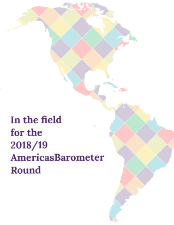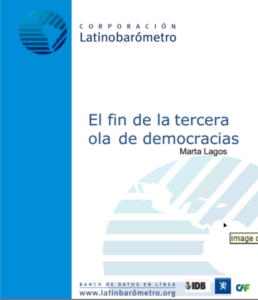 Latin America was primed to explode. Economic malaise, social media, corruption, and foreign meddling combined to fuel raging protests from Chile to Haiti. What’s next for beleaguered democratic regimes in Latin America? analysts Moisés Naím and Brian Winter ask.
Latin America was primed to explode. Economic malaise, social media, corruption, and foreign meddling combined to fuel raging protests from Chile to Haiti. What’s next for beleaguered democratic regimes in Latin America? analysts Moisés Naím and Brian Winter ask.
If Latin America is to recapture the relative prosperity of the early years of the millennium, an ambitious reform agenda is necessary—one that goes beyond the standard measures popular among pro-business types, such as tax reform and trade deals, they write in Foreign Affairs:
Instead of waiting for the protests to spread, leaders across the region should identify the top two or three priorities for their countries—for example, malnutrition in the Northern Triangle countries of Central America, security in Mexico or Brazil, infrastructure in Colombia, modernization of schools everywhere—and convene broad coalitions to address them. Chronic shortfalls in health care, security, infrastructure, and education hold back growth in much of the region. To effectively address these problems, governments, businesses, and civil society must collaborate. People will need to put their mobile phones aside for a moment and stop expecting governments to solve all of their problems.
 People are not only mad at an individual politician or a particular party but at the system as a whole, adds Winter, AS/COA Vice President and Americas Quarterly Editor-in-Chief:
People are not only mad at an individual politician or a particular party but at the system as a whole, adds Winter, AS/COA Vice President and Americas Quarterly Editor-in-Chief:
Polls tell us this. If you look at Latinobarómetro’s most recent poll asking people how satisfied they are with democracy, it’s the lowest level on record. That opens the door to populist leaders and more slow growth and more turmoil. It’s a kind of vicious cycle like what we’ve seen in Latin America in the past, in the 1970s and 80s. But for those of us who never lived through that, at least as adults, it’s been quite a shock.
As a response to the current hemispheric challenges, the Global Americans* High Level Working Group on Inter-American Relations and Bipartisanship released three new policy papers containing over two-dozen recommendations on the challenges of the Venezuelan refugee crisis and the hemisphere’s collective responsibility in providing humanitarian assistance; the Caribbean’s vulnerability to climate change; and the role of Latin America and the Caribbean in addressing global challenges.
 Inter-American Dialogue hosts a discussion on “Latin America’s Autumn of Discontent.”
Inter-American Dialogue hosts a discussion on “Latin America’s Autumn of Discontent.”
Panelists: Monica de Bolle, professor in the Johns Hopkins School of Advanced International Studies’ Latin American Studies Program; Michael Penfold, professor at the Institute of Higher Administration Studies; Michael Shifter, president of Inter-American Dialogue; and Michael Camilleri, director of the IAD Rule of Law Program
3 p.m. November 6, 2019. Venue: IAD, 1155 15th Street NW, Suite 800, Washington, D.C. RSVP
*A partner of the National Endowment for Democracy, the Washington-based democracy assistance group.







